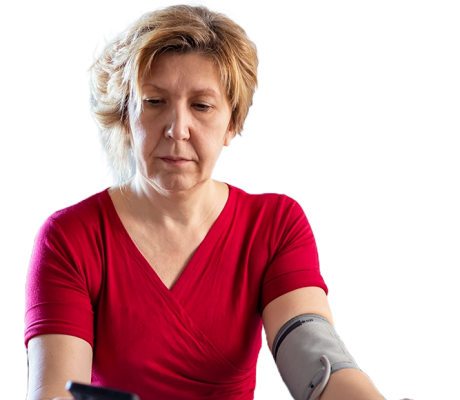
The Blue KC Care Management app resource library makes it easy to get your health questions answered. Download it now and use access code kcwsqcare.
Whether it’s for one night or several, here are seven ways to set yourself up for a better stay at the hospital and a faster recovery.

The hospital is probably the last place you want to spend the night, but it could be the best place for you to get better. In 2023, more than 34 million people were admitted to the hospital for everything from knee surgery to illnesses like heart disease.
Do you have a hospital stay coming up? Here are seven things you can do to make your stay better — and help you recover faster.
If you know you'll need time to recover at home after a hospital stay, you’ll want to set up help in advance. Think about the type of support you might need. For example, say you’re having a knee replacement. You might need a home health aide to help with chores around the house. Or you may need a physical therapist to help you rebuild strength. Setting up the right support early lets you focus on healing as soon as you’re back home.
Make a list of all the things you use every day. Then pack those things first so you don’t forget them. Some examples: contact solution, toothpaste, and especially your cell phone charger.
One more must-have? A book, crossword puzzle, or other small activity you enjoy. You may feel anxious or spend a lot of time waiting. A favorite activity will help keep your mind busy.

The Blue KC Care Management app resource library makes it easy to get your health questions answered. Download it now and use access code kcwsqcare.
Bring the following things with you to the hospital:
The fitter and more active you are before surgery, the more likely you are to recover faster. Sometimes, your provider may even tell you to see a physical therapist before your procedure. The goal is to get you to hit the ground running as soon as possible after surgery.
Make sure you’re getting enough protein and vitamin C. Your body will use up both as it’s trying to heal. Vitamin C can be found in oranges, tomatoes, and bell peppers. Good protein sources include:
Also, make sure you’re hydrated. Drink 64 ounces or more of fluid a day.
It’s best to stop drinking all alcohol at least two weeks before surgery. This can help lower your risk of complications.
It's wise to quit smoking too. The reason: Smoking reduces blood flow. That slows healing. Smoking also makes you more likely to have complications like trouble breathing from anesthesia.
Struggling to give up cigarettes? Here’s some good news: Quitting smoking even the day before surgery lowers the risk of complications. Levels of unhealthy chemicals from cigarette smoke begin to drop right after quitting, which improves blood flow.
Every time a provider comes into your hospital room, take notes. Some helpful things to write down:
You can look at your notes later if you have any questions about your care.
Article sources:
Hospital admissions statistic: Statista
Advanced directives: National Institute on Aging
Prehabilitation: American College of Surgeons
Alcohol and surgery: JMIR Perioperative Medicine
Smoking and surgery: American Society of Anesthesiologists